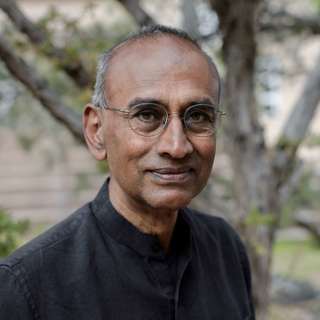
#202 – Venki Ramakrishnan on the cutting edge of anti-ageing science
Jaksokuvaus
"For every far-out idea that turns out to be true, there were probably hundreds that were simply crackpot ideas. In general, [science] advances building on the knowledge we have, and seeing what the next questions are, and then getting to the next stage and the next stage and so on. And occasionally there’ll be revolutionary ideas which will really completely change your view of science. And it is possible that some revolutionary breakthrough in our understanding will come about and we might crack this problem, but there’s no evidence for that. It doesn’t mean that there isn’t a lot of promising work going on. There are many legitimate areas which could lead to real improvements in health in old age. So I’m fairly balanced: I think there are promising areas, but there’s a lot of work to be done to see which area is going to be promising, and what the risks are, and how to make them work." —Venki RamakrishnanIn today’s episode, host Luisa Rodriguez speaks to Venki Ramakrishnan — molecular biologist and Nobel Prize winner — about his new book, Why We Die: The New Science of Aging and the Quest for Immortality.Links to learn more, highlights, and full transcript.They cover:What we can learn about extending human lifespan — if anything — from “immortal” aquatic animal species, cloned sheep, and the oldest people to have ever lived.Which areas of anti-ageing research seem most promising to Venki — including caloric restriction, removing senescent cells, cellular reprogramming, and Yamanaka factors — and which Venki thinks are overhyped.Why eliminating major age-related diseases might only extend average lifespan by 15 years.The social impacts of extending healthspan or lifespan in an ageing population — including the potential danger of massively increasing inequality if some people can access life-extension interventions while others can’t.And plenty more.Chapters:Cold open (00:00:00)Luisa's intro (00:01:04)The interview begins (00:02:21)Reasons to explore why we age and die (00:02:35)Evolutionary pressures and animals that don't biologically age (00:06:55)Why does ageing cause us to die? (00:12:24)Is there a hard limit to the human lifespan? (00:17:11)Evolutionary tradeoffs between fitness and longevity (00:21:01)How ageing resets with every generation, and what we can learn from clones (00:23:48)Younger blood (00:31:20)Freezing cells, organs, and bodies (00:36:47)Are the goals of anti-ageing research even realistic? (00:43:44)Dementia (00:49:52)Senescence (01:01:58)Caloric restriction and metabolic pathways (01:11:45)Yamanaka factors (01:34:07)Cancer (01:47:44)Mitochondrial dysfunction (01:58:40)Population effects of extended lifespan (02:06:12)Could increased longevity increase inequality? (02:11:48)What’s surprised Venki about this research (02:16:06)Luisa's outro (02:19:26)Producer: Keiran HarrisAudio engineering: Ben Cordell, Milo McGuire, Simon Monsour, and Dominic ArmstrongContent editing: Luisa Rodriguez, Katy Moore, and Keiran HarrisTranscriptions: Katy Moore